Top 10 Driving Rules and Safety Tips in Dubai for 2025
Driving in Dubai can be both exhilarating and challenging. Known for its sleek highways, state-of-the-art infrastructure, and high-speed limits, Dubai offers a unique driving experience that feels tailor-made for efficiency and excitement. However, for visitors, understanding the local rules and nuances is essential to navigating the city safely and avoiding hefty fines.
In Dubai, the traffic rules are strictly enforced with advanced radar systems, cameras, and checkpoints, making even small violations costly. From specific speed limits on different road types to fines for seemingly minor infractions, driving in Dubai requires attention and respect for the rules. Add to that the unique road culture, which often includes high-speed overtakes and lane changes, and it’s easy to see why being well-prepared can make all the difference.
This comprehensive guide will help you become familiar with the road rules, the most common fines, and crucial safety tips to ensure you enjoy a smooth, hassle-free driving experience. Whether you’re renting a car for a business trip or a vacation, following these guidelines will help you make the most of your time on Dubai’s roads.
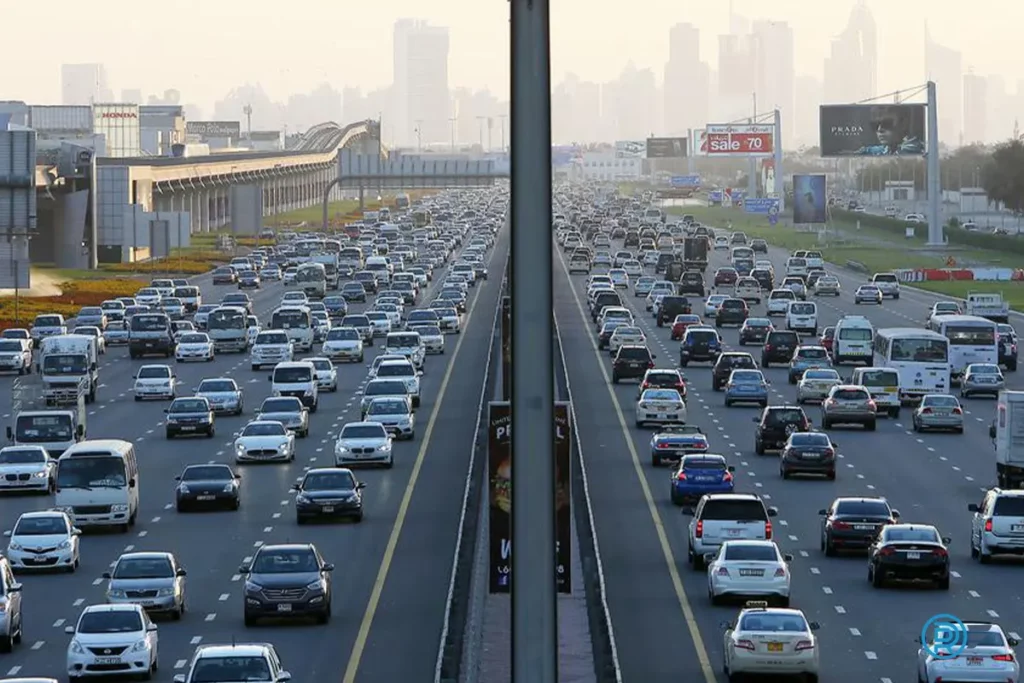
Understanding the Road Rules
Driving in Dubai may seem enjoyable and easy at first glance, but it requires a thorough understanding of the city’s unique road rules and traffic regulations. With its advanced infrastructure, wide roads, and intelligent monitoring systems, Dubai expects drivers to adhere to strict standards. Therefore, whether you’re a resident or a tourist, knowing these rules is essential for a safe and hassle-free driving experience.
Key road principles in Dubai include obeying speed limits, avoiding mobile phone use while driving, mandatory seat belt use for all passengers, and yielding the right of way—especially at roundabouts. Violations such as running a red light or performing dangerous maneuvers like sudden lane changes are considered serious offenses and can result in hefty fines, black points on your license, and even vehicle impoundment.
Another important point to note is giving priority to emergency vehicles like ambulances and fire trucks. Failure to do so can lead to fines amounting to several thousand dirhams. In case of an accident, the law requires that the vehicles be moved to the side of the road to prevent traffic disruption—unless there are injuries, in which case the vehicles should remain in place until authorities arrive.
Dubai speed and traffic rules
In Dubai, strictly adhering to Driving Rules—especially regarding speed and traffic rules—is extremely important. Due to the presence of advanced speed-monitoring cameras across most streets and highways, even the slightest violation can result in heavy fines. Therefore, understanding the permitted speed limits and proper traffic behavior is essential for every driver.
Within city limits, speed limits typically range from 40 to 80 kilometers per hour, depending on the type of road and the area’s density. On highways and expressways, the speed limit can reach 120 or even 140 kilometers per hour, though in certain routes lower limits may apply. Conversely, near schools, hospitals, or residential zones, the speed may be reduced to as low as 30 kilometers per hour.
An important aspect of Dubai’s traffic laws is the concept of “permissible overspeed margin.” For example, on a road with a 100 km/h speed limit, driving up to 120 km/h was previously tolerated. However, in recent years, this margin has been removed in some areas, meaning even exceeding the limit by 1 km/h can lead to a fine.
When it comes to traffic behavior, sudden lane changes, overtaking from the right, blocking emergency vehicles, illegal roadside parking, or using a mobile phone while driving are all offenses that carry monetary fines and black points on the driver’s license. Additionally, drivers are required to move calmly in heavy traffic and avoid unnecessary honking.
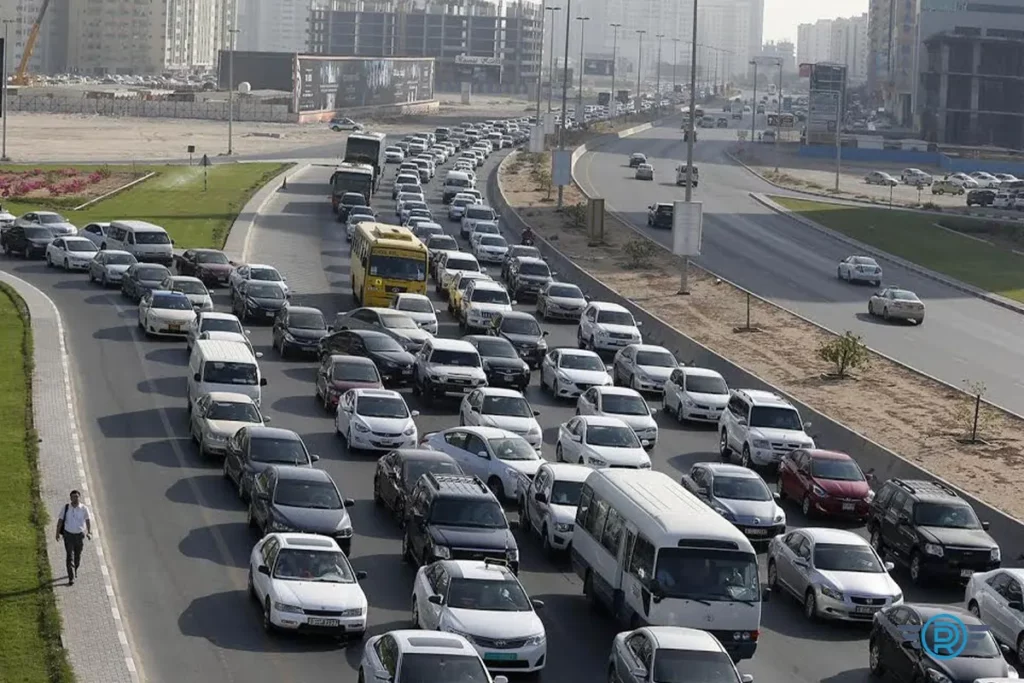
Rules for using mobile phones
In Dubai, using a mobile phone while driving is considered a serious traffic violation, and the authorities enforce strict penalties for this offense. According to UAE Driving Rules, using a mobile phone without hands-free equipment—whether for making calls, texting, or using apps—is strictly prohibited.
This regulation was implemented due to the significant rise in accidents caused by distracted driving related to mobile phone use. If a police officer or surveillance camera detects a driver using a phone without hands-free gear, the driver will face a fine of AED 800 and receive 4 black points on their license. In cases of repeated violations, the vehicle may even be impounded.
Using a mobile phone while stopped at a red light can also result in fines. The only legally permitted way to make a call while driving is through hands-free devices or the car’s built-in Bluetooth system. However, even under these conditions, it is recommended to keep conversations brief to avoid losing focus while driving.
Seat belt requirements
One of the most important Driving Rules strictly enforced by Dubai’s traffic police is the mandatory use of seat belts for all vehicle occupants—both in the front and back seats. This rule applies without exception to all drivers, passengers, and even children over the age of 10.
According to official regulations, all adult passengers must wear seat belts, and failure to do so results in a fine of AED 400 and 4 black points on the driver’s license. More importantly, if a child is found in the car without an appropriate child safety seat, the driver may also face vehicle impoundment in addition to financial penalties.
This law is applicable not only to private drivers but also to taxi drivers, ride-hailing services like Uber, and drivers of public transportation vehicles. Police officers and road surveillance cameras monitor compliance, and violations are penalized immediately.
The primary goal of enforcing this law is to reduce injury and fatalities in accidents and to promote a culture of safety on the roads. Wearing a seat belt can reduce the risk of death or serious injury in an accident by up to 50%. Therefore, adhering to this simple rule can make a significant difference in both personal and public safety.
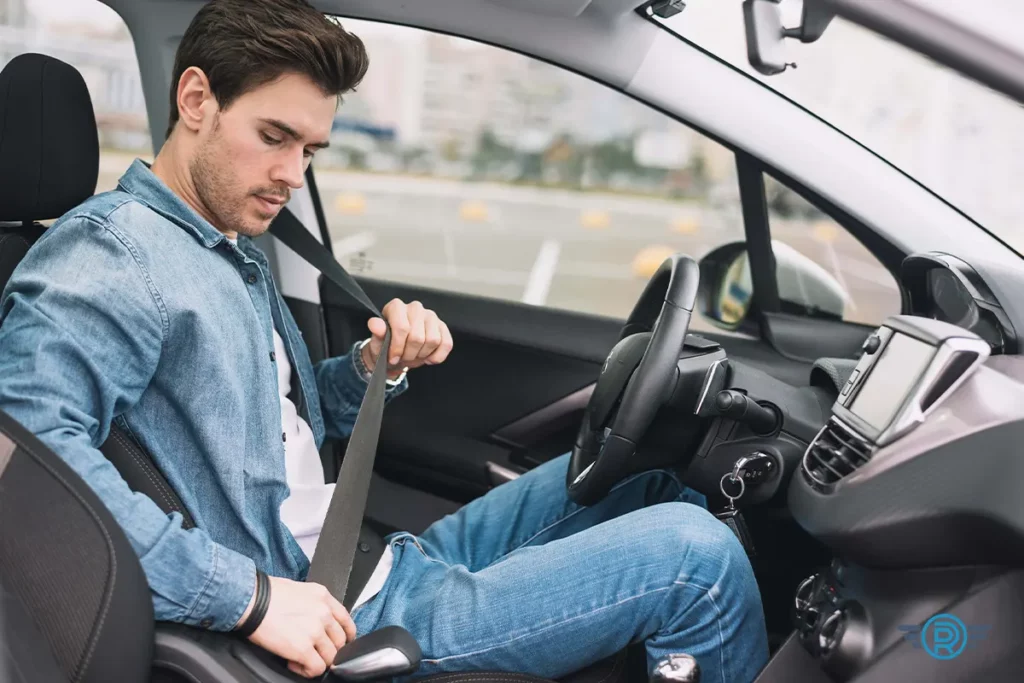
Stopping at a red light
One of the most crucial traffic rules that every driver must follow in Dubai is coming to a complete stop at red traffic lights. Ignoring this law can lead to serious consequences for the driver.
Why is stopping at red lights important in Dubai?
Traffic signals in Dubai are controlled by intelligent systems that efficiently regulate traffic flow. If a driver runs a red light without stopping, they not only endanger their own life but also put others at risk. This violation is considered a major offense and is penalized with heavy fines, license demerit points, and possible vehicle impoundment.
Penalty for running a red light in Dubai
According to UAE Driving Rules, running a red light can result in a fine of up to AED 1,000. In some cases, the driver may also receive 12 black points on their license and the vehicle may be impounded for up to 30 days. This law applies to all types of vehicles, including private cars, taxis, and motorcycles.
Automated violation detection cameras
Smart surveillance cameras are installed at intersections throughout the city to automatically detect red light violations. No driver can escape the eyes of these advanced systems. Therefore, understanding and complying with traffic laws is the best way to ensure a safe driving experience in Dubai.
Driving under the influence of drugs or alcohol
Driving under the influence of alcohol or drugs is considered one of the most serious traffic violations in the UAE. According to the country’s Driving Rules, this behavior is seen as a major threat to both the driver and the public, and it carries severe penalties.
Why is driving under the influence so dangerous?
When a driver is impaired by alcohol or drugs, their concentration, reaction time, and decision-making abilities are significantly reduced. This greatly increases the likelihood of a serious accident. As a result, UAE law does not recognize any legal limit for alcohol consumption while driving — even the smallest amount is considered illegal.
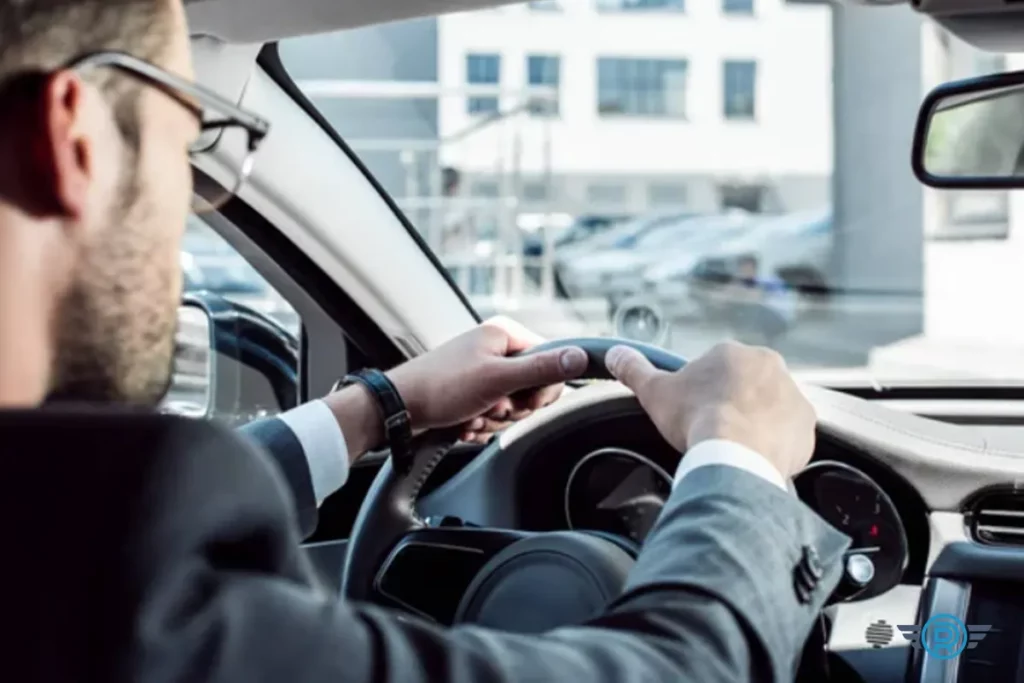
Penalties for driving under the influence of alcohol or drugs
If a driver is found operating a vehicle while under the influence, they may face the following consequences:
- Vehicle impoundment for up to 60 days
- A hefty fine (up to AED 20,000)
- Long-term suspension of the driver’s license
- 23 black points on their driving record
- Possible imprisonment depending on the case
These penalties are intended to deter repeat offenses and to ensure public safety on the roads.
Alcohol and drug testing by police
Dubai police officers have the authority to conduct alcohol or drug tests if they suspect a driver is under the influence. These tests are usually carried out using precise digital breathalyzers or instant drug screening kits. If the test result is positive, the case is referred to court for further legal action.
Car insurance requirements in Dubai
In Dubai, having valid car insurance is mandatory for any vehicle operating on the roads. According to UAE traffic laws, no vehicle is allowed to be driven within the city or on highways without insurance. This regulation is not only for the driver’s protection but also to ensure compensation for any potential damages caused to others.
Why is car insurance compulsory?
Car insurance serves as a financial safeguard that covers the costs related to accidents, fire, theft, or damages caused to third parties. By enforcing this requirement, the Dubai government aims to provide peace of mind for both drivers and pedestrians in the event of road incidents.
Types of Car Insurance in Dubai
- Third-Party Insurance: This basic form of insurance covers damages or injuries caused to other people or their property. However, it does not cover damages to the policyholder’s own vehicle.
- Comprehensive Insurance: This offers broader protection, covering third-party damages as well as personal vehicle damages, theft, fire, and other specific incidents.
No Insurance, No Registration
A valid insurance policy is a legal prerequisite for registering or renewing a vehicle’s license plate. Insurance companies in Dubai operate under official regulation, and their policy data is electronically linked to the Dubai Roads and Transport Authority (RTA). Without insurance, vehicle registration or renewal cannot be processed.
Penalty for not having insurance
Driving a vehicle without valid insurance in Dubai results in strict penalties. If a driver is caught operating an uninsured car, they may face:
- A hefty fine
- Vehicle impoundment
- Suspension of the driver’s license
These penalties are enforced to enhance public safety on the roads and ensure that all drivers are financially responsible in the event of accidents. Authorities in Dubai take such violations seriously to reduce risks for all road users.
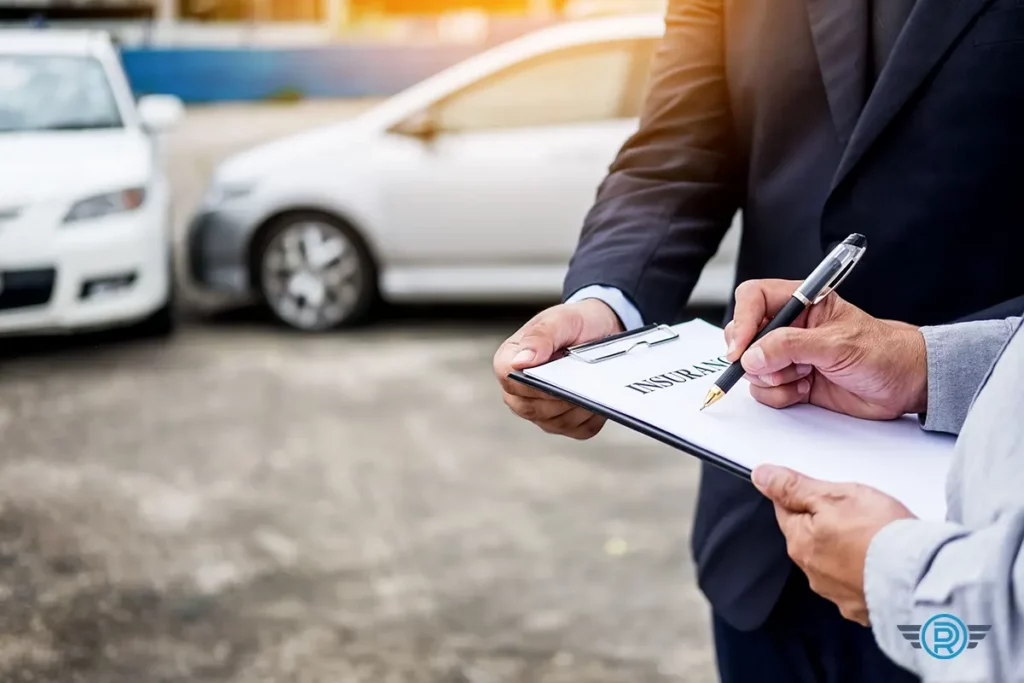
Driving at night
Driving at night is always riskier due to reduced visibility, driver fatigue, and the possibility of unexpected obstacles or pedestrians on the road. That’s why strictly following Driving Rules during nighttime driving is especially important.
One key rule is the proper use of high and low beams. A driver should know that high beams are only allowed on dark and empty roads. As soon as an oncoming vehicle appears or the driver approaches another car from behind, they must immediately switch to low beams to avoid blinding others.
Another crucial point is maintaining a safe speed at night. Limited visibility and slower reaction times increase the risk of accidents. That’s why it’s essential to drive slower and more cautiously than during the day, especially on unfamiliar or secondary roads.
Paying attention to road markings and warning signs also plays a vital role. In the dark, these signs help drivers stay on the right path and avoid potential dangers.
Another issue that should never be ignored is fatigue and drowsiness while driving at night. According to traffic laws, if a driver’s alertness drops, continuing the journey is both dangerous and prohibited. In such cases, the driver must stop and rest—or even spend the night in a safe place. Ignoring this can lead to serious and sometimes irreversible accidents.
By following these simple yet essential tips, drivers can reduce the risks associated with night driving and ensure a safer journey.
In although nighttime driving is sometimes unavoidable, by carefully following traffic laws, many accidents can be prevented. For greater safety, be sure to follow these guidelines:
- Functioning headlights
- Properly adjusted mirrors
- Wearing a seatbelt
- Maintaining safe following distance
- Staying focused
Dubai Road Rules on Highways
In Dubai, following driving rules—especially on highways—is very important. With its modern infrastructure and strict police supervision, the city aims to create a safe and organized environment for vehicles. Drivers planning to use Dubai’s highways must be well aware of the road regulations.
Speed Limits and Smart Monitoring
Dubai highways have specific speed limits, usually ranging from 100 to 140 km/h. In some areas, minimum speed limits are also set, and violating them results in fines. To ensure compliance, speed control cameras are installed throughout the highways to automatically record violations.
Mandatory Use of Seat Belts
One of the driving rules in Dubai requires all vehicle occupants to wear seat belts. Even passengers sitting in the rear seats must buckle up. Failure to comply leads to specified fines.
Staying in Lanes and Prohibition of Using Emergency Lanes
Drivers must always stay in their proper lanes on Dubai highways and change lanes only when permitted and by signaling. Using emergency lanes for regular driving is prohibited except in emergencies such as vehicle breakdowns or for emergency vehicles.
Overtaking Only from the Left
Another important rule is that overtaking is allowed only from the left side. Overtaking from the right is considered illegal and dangerous. Drivers should use their indicators when overtaking and only change lanes after ensuring the path is clear.
Maintaining Safe Distance Between Vehicles
Maintaining a safe distance at high speeds is crucial. Failure to keep this distance, especially in poor weather or traffic conditions, increases the risk of accidents. Dubai strictly enforces laws regarding safe spacing between vehicles on highways.
Ban on Using Mobile Phones While Driving
Using mobile phones without a hands-free device or in-car audio system while driving—even on highways—is prohibited. This distraction can lead to serious dangers. Penalties for this violation are very severe.
No Parking on the Highway
Parking on the side of highways—even briefly—is forbidden unless in emergencies. Vehicles stopped without valid reasons face fines and may be towed away.
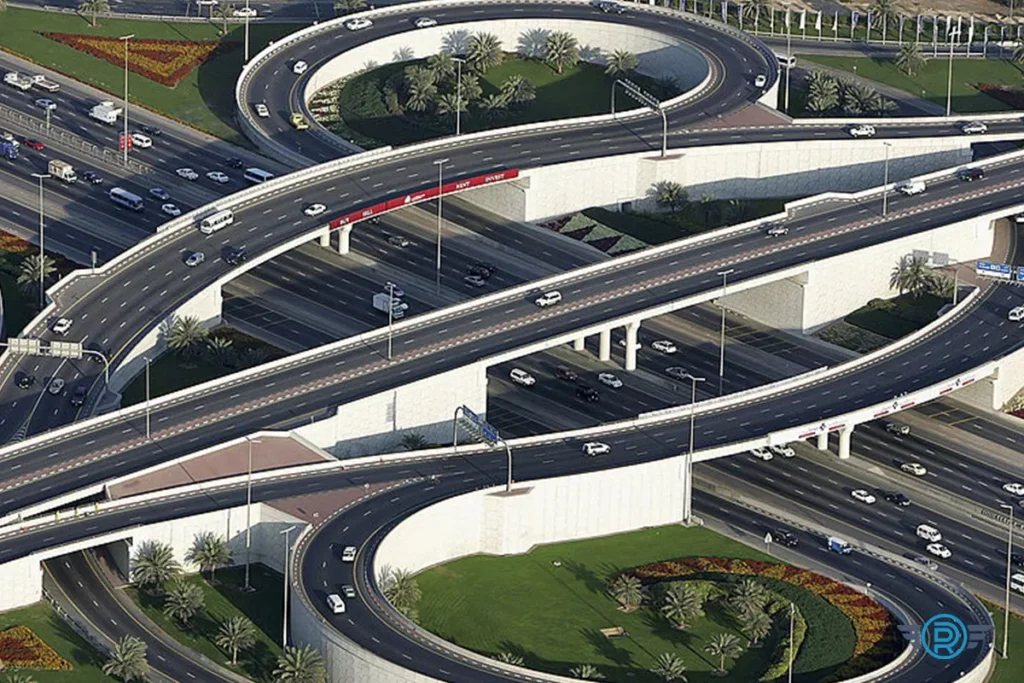
Observing driving lanes in Dubai
Following lane markings in Dubai is a fundamental part of traffic regulations that helps maintain order, safety, and smooth traffic flow on roads and highways. Drivers are required to always pay attention to the designated lines and follow them to prevent accidents and traffic problems.
Types of Lane Markings and Their Importance
Dubai’s roads and highways use various lane markings, each with its own meaning and rules:
- Solid White Lines: Crossing these lines is prohibited; drivers must stay within their lane.
- Broken White Lines: Changing lanes and overtaking are allowed when safe and with signaling.
- Yellow Lines: Typically separate opposing traffic flows or mark special zones; crossing these lines is illegal.
- Double Lines: A combination of solid and broken lines; crossing is only allowed when permitted and safe.
Key Rules for Observing Lane Markings
- Maintaining Your Lane: Drivers must stay within their assigned lanes and avoid sudden or unnecessary lane changes.
- Using Turn Signals: When changing lanes, signaling is mandatory to inform other drivers of your intentions.
- No Overtaking from the Right: Overtaking is only permitted from the left; improper lane changes increase accident risk.
- Respecting Emergency Lanes: Emergency lanes are reserved for vehicle breakdowns or accidents; driving in these lanes is forbidden.
Consequences of Violating Lane Markings
Failure to comply with lane marking rules in Dubai can result in fines, license point deductions, and even vehicle impoundment. Moreover, ignoring these rules can cause serious accidents and heavy traffic congestion.
Right-of-way rules in Dubai
Following right-of-way rules is a fundamental part of traffic laws in Dubai, aimed at maintaining order, safety, and preventing accidents on various roads. Proper understanding and respect of right-of-way—especially at intersections, roundabouts, and pedestrian crossings—are mandatory for all drivers.
General Principles of Right-of-Way in Dubai
- At Intersections: Where there are no signs or traffic lights, vehicles coming from the right have the right-of-way. This is known as the “priority to the right” rule. Drivers should slow down and be ready to stop before entering the intersection.
- At Roundabouts: Vehicles already inside the roundabout have priority, and entering vehicles must yield. Drivers approaching the roundabout must stop or slow down to give way.
- Pedestrian Crossings: Pedestrians have full right-of-way at crosswalks. Drivers are required to stop and allow pedestrians to cross safely. Failure to comply results in heavy fines.
- Emergency Vehicles: Ambulances, fire trucks, and police cars using sirens and flashing lights have absolute priority. All other vehicles must quickly clear the way for them.
Important Notes about Right-of-Way in Dubai
- Traffic signs and signals take precedence in determining right-of-way, and drivers must always obey these indicators.
- On highways, drivers must yield to vehicles already on the road when entering or changing lanes.
- In busy or congested areas, traffic police may manually control right-of-way, and their instructions must be followed immediately.
Consequences of Ignoring Right-of-Way Rules
Ignoring right-of-way rules can lead to serious accidents, heavy fines, and points deducted from the driver’s license. In severe cases, vehicles may be impounded, and drivers can be banned from driving for a certain period.
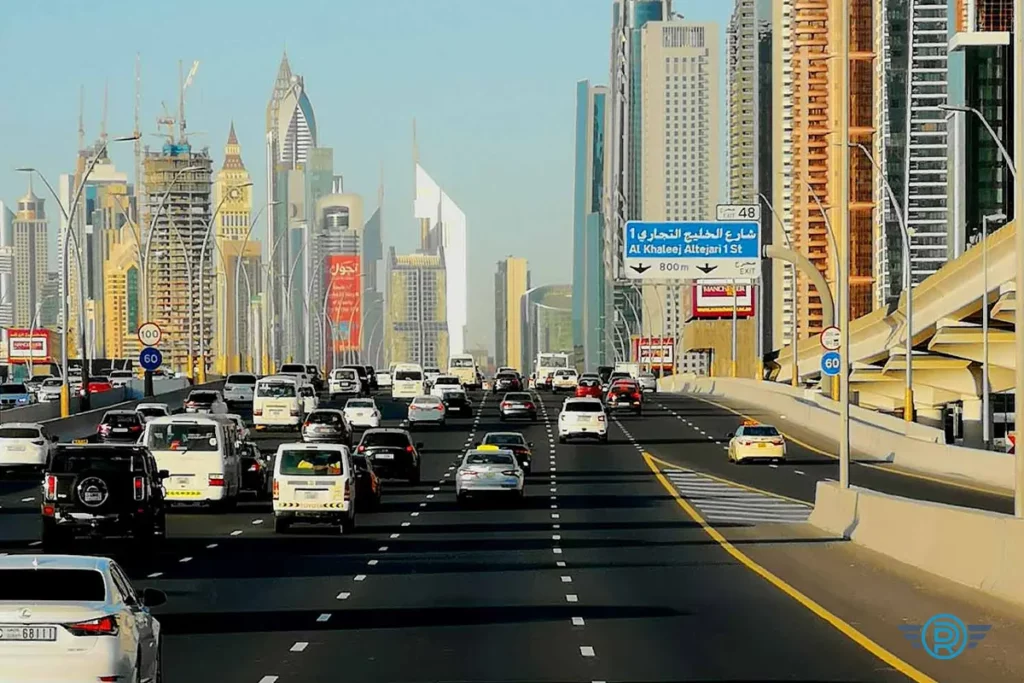
Parking rules and toll system in Dubai
In Dubai, obeying parking regulations and paying toll fees on time are important parts of traffic laws and management. These rules are designed to maintain order on streets, prevent unwanted traffic congestion, and increase road safety. Violations usually lead to heavy fines.
Parking Rules in Dubai
- No Parking Zones: Parking is strictly prohibited in areas marked with “No Parking” signs. These include emergency lanes, in front of building entrances, beside highways, and pedestrian crossings.
- Street Parking: To park on Dubai streets, you usually need to use parking meters and pay fees. Payment can be made electronically via mobile apps or parking meters.
- Parking Time Limits: Some areas have time restrictions for parking, indicated by signs. Parking beyond the allowed time may result in fines.
- Residential Areas: In many residential zones, parking is allowed only for residents with permits. Unauthorized vehicles may be fined or towed.
- Private Parking: Parking in private or commercial parking lots without the owner’s permission is prohibited and can lead to towing or fines.
Toll System (Salik) in Dubai
Dubai uses an electronic toll system called Salik, installed at entrances and key sections of highways.
- Vehicles are automatically identified by cameras when passing toll gates, and fees are deducted from the vehicle’s electronic account.
- Drivers must top up their Salik accounts before using tolled highways; failure to do so results in heavy fines.
- Toll fees vary depending on the location and type of highway but are generally fixed rates.
Consequences of Violations in Parking and Toll Payments
Violating parking rules, such as parking in prohibited areas or not paying tolls, results in fines, negative points on the driver’s license, and sometimes vehicle towing. Failure to pay Salik tolls on time incurs additional heavy penalties.
final word
Lorem ipsum dolor sit amet, consectetur adipiscing elit. Ut elit tellus, luctus nec ullamcorper mattis, pulvinar dapibus leo.Careful adherence to these rules and safety tips is the key to having a safe and legal driving experience in Dubai. Being aware of speed limits, right-of-way, mobile phone usage, seat belt requirements, vehicle insurance, and other regulations helps prevent accidents and heavy fines, while contributing to traffic order and road safety. Drivers should always stay alert and respect the laws to ensure their own safety and that of others.





















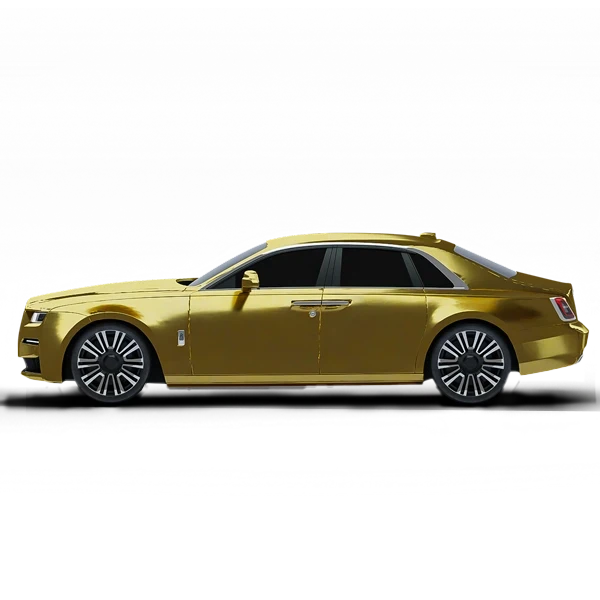







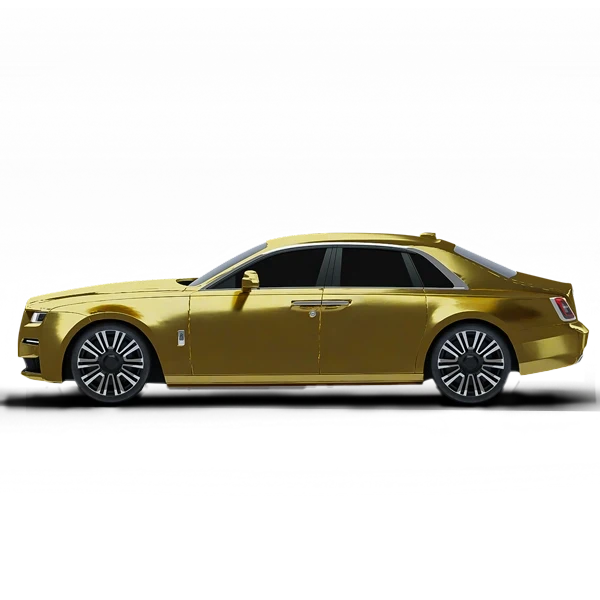







 Rolls Royce
Rolls Royce Lexus
Lexus Lamborghini
Lamborghini Porsche
Porsche Ferrari
Ferrari Toyota
Toyota Mercedes Benz
Mercedes Benz BMW
BMW Land Rover
Land Rover Bentley
Bentley Nissan
Nissan Cadillac
Cadillac Audi
Audi Chevrolet
Chevrolet GMC
GMC Hyundai
Hyundai Kia
Kia Mazda
Mazda